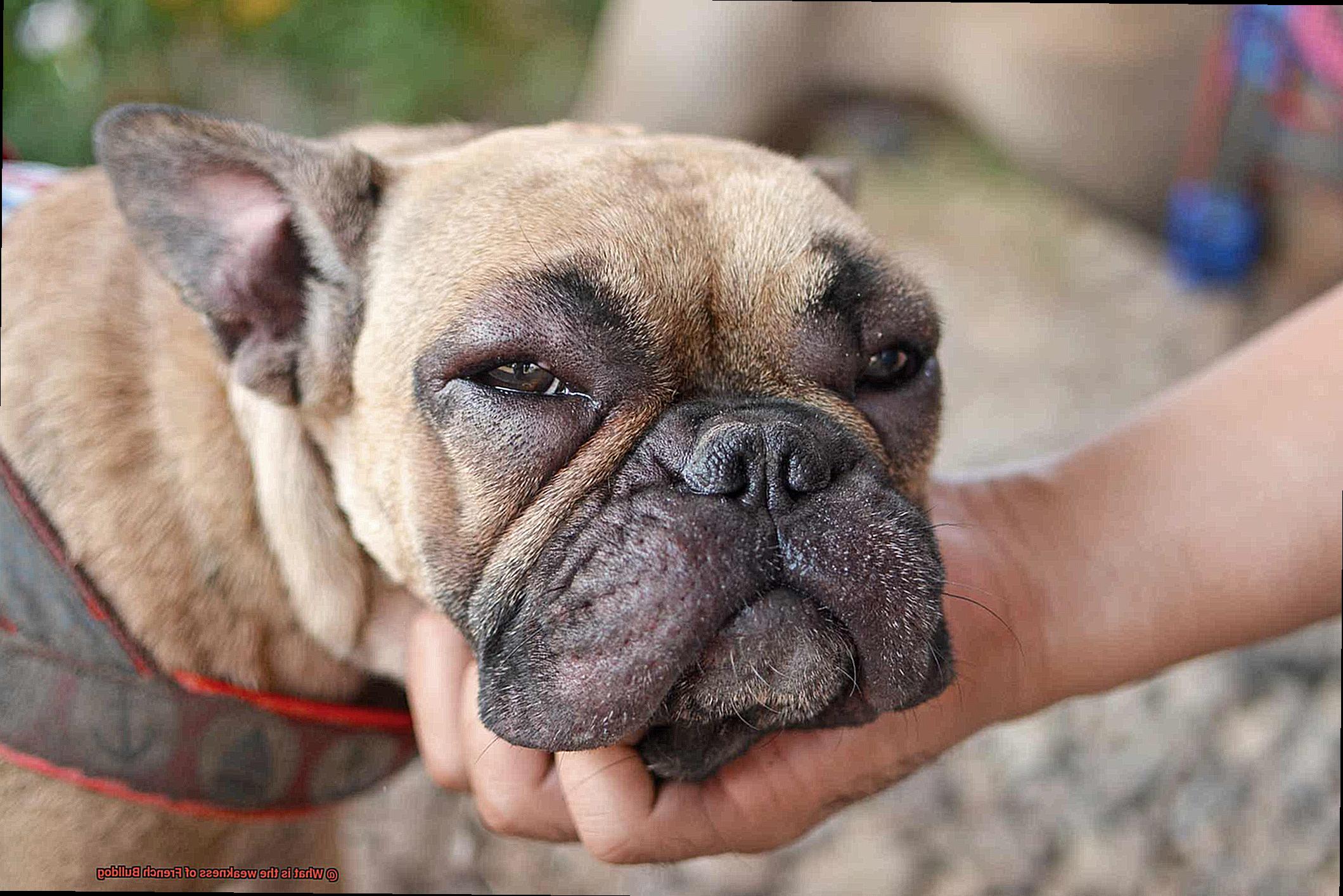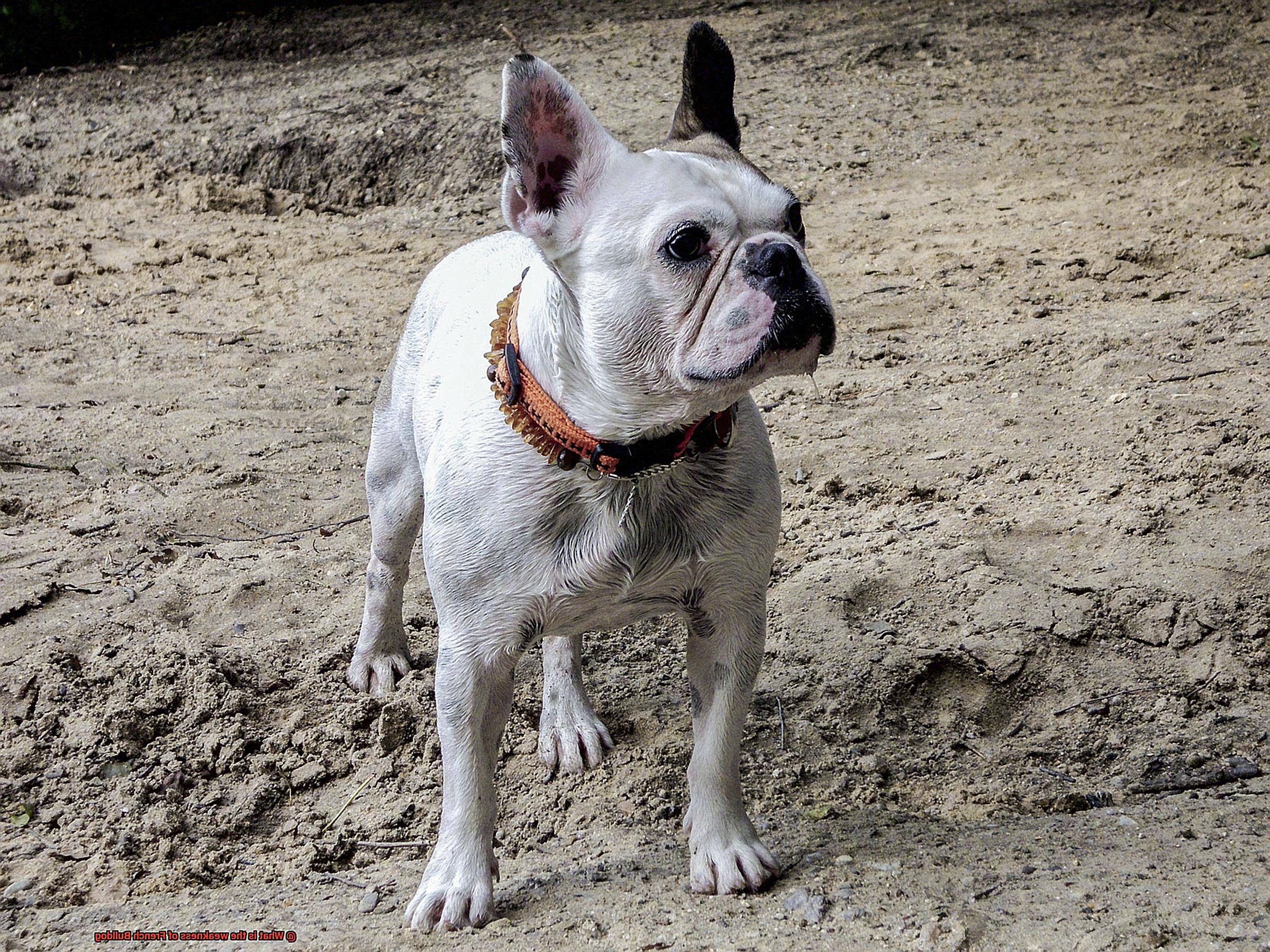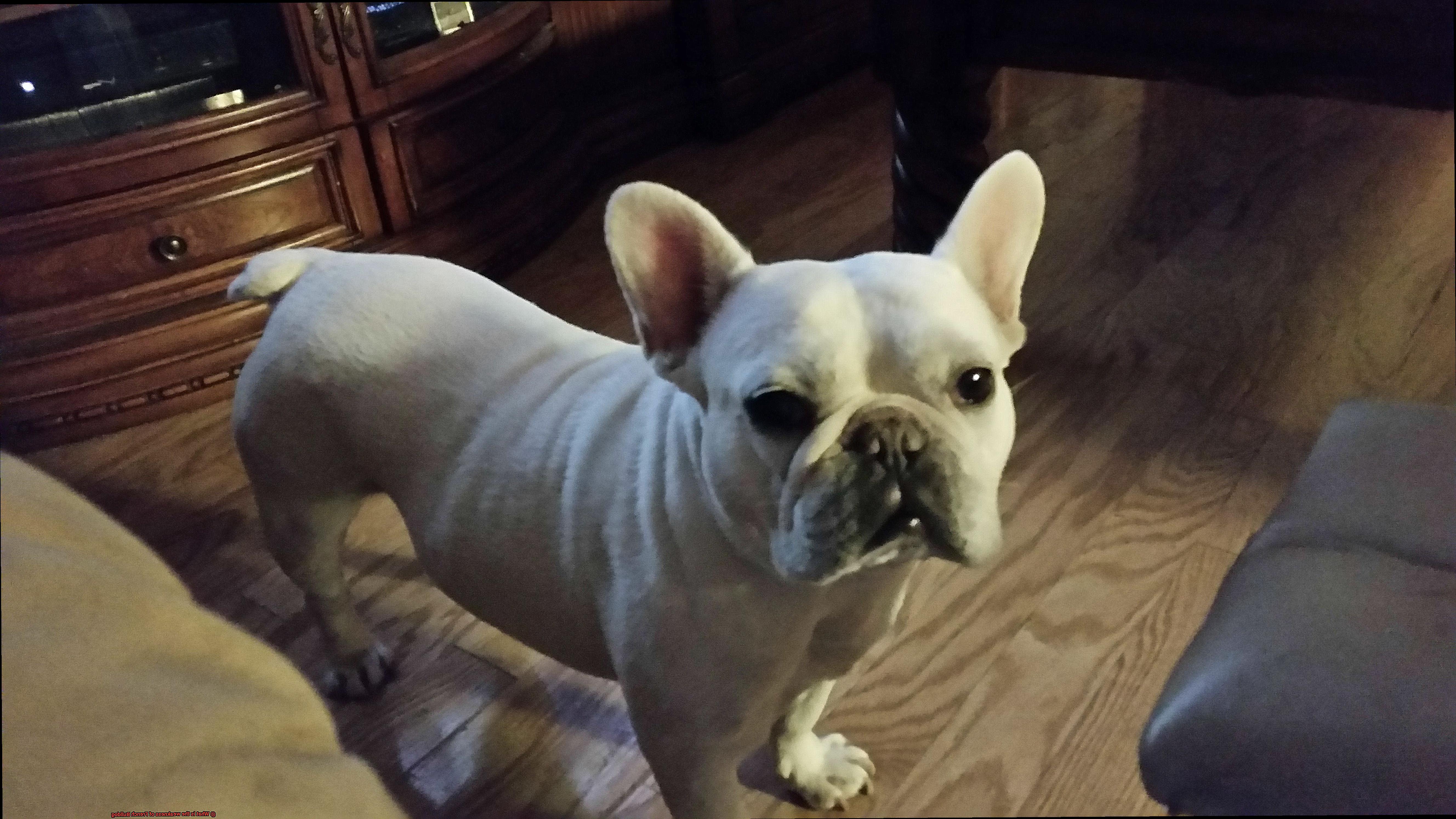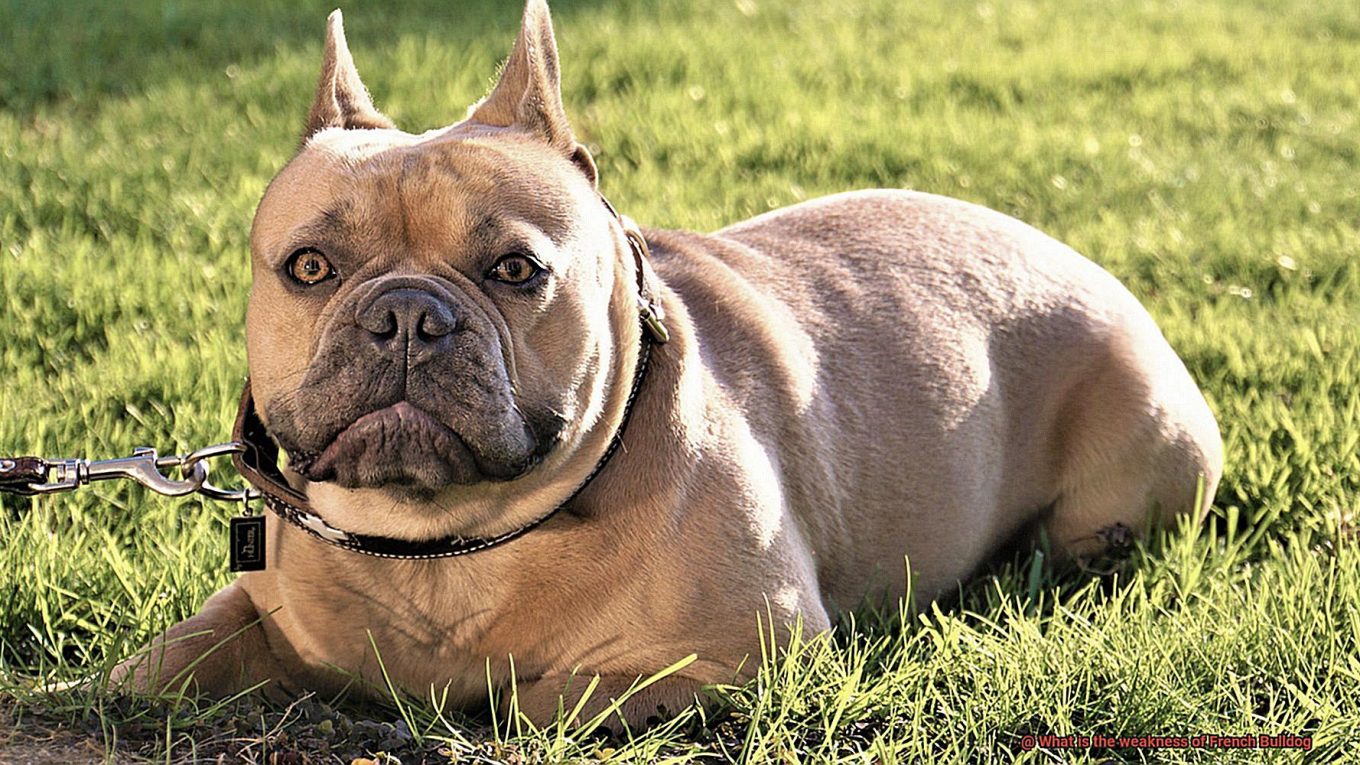What is the weakness of French Bulldog?
The French Bulldog, affectionately known as the Frenchie, has stolen the hearts of dog lovers everywhere with their irresistible charm and adorable looks. But like any breed, French Bulldogs have their fair share of weaknesses. Understanding and acknowledging these vulnerabilities is crucial for potential owners to provide the best care and ensure the well-being of their furry friends.
Despite their many lovable qualities, French Bulldogs do have weaknesses. Their brachycephalic (short-nosed) anatomy and genetic predisposition to certain health issues are important factors to consider before bringing a Frenchie into your life.
One significant weakness that French Bulldogs face is brachycephalic syndrome. Although their cute flat faces melt our hearts, they can also lead to breathing difficulties. Due to their short snouts, Frenchies may struggle with respiratory distress, especially in hot and humid weather. This vulnerability puts them at risk of heatstroke and can cause exercise intolerance, snoring, and difficulty regulating body temperature.
Additionally, the compact body structure of French Bulldogs can make them prone to orthopedic weaknesses. Joint problems like hip dysplasia, intervertebral disc disease, and patellar luxation are common concerns. To minimize the risk of developing these conditions, owners must provide appropriate exercise, maintain a healthy weight for their Frenchie, and closely monitor physical activities.

In addition to physical vulnerabilities, French Bulldogs are genetically susceptible to certain health issues. Skin allergies, eye problems such as cherry eye and corneal ulcers, and cardiac diseases like aortic stenosis are among the concerns that owners should be aware of. Regular visits to the veterinarian and genetic testing can aid in early detection and management of these conditions.
It’s important to note that not all French Bulldogs will experience these weaknesses if responsible breeding practices are followed. When considering adding a Frenchie to your family, it’s crucial to choose a reputable breeder and thoroughly research the health history of the lineage.
In the upcoming articles, we will delve deeper into each of these vulnerabilities, providing comprehensive information on prevention, management, and symptoms to watch out for. By understanding the weaknesses of French Bulldogs, we empower ourselves to provide the best possible care, ensuring a happy and healthy life for our beloved companions.
So, stay tuned as we uncover these vulnerabilities and debunk any myths surrounding them.
Brachycephalic Structure and Breathing Difficulties
Contents
French Bulldogs are adored for their cute appearance, but their distinct brachycephalic (short-nosed) structure can lead to serious health issues, particularly breathing difficulties. It is crucial for owners to comprehend the implications of this anatomical feature to ensure the well-being of their beloved pets.
The Brachycephalic Structure:
French Bulldogs possess a unique head structure characterized by a short and wide skull. This compacted facial structure contributes to narrowed airways, making it harder for them to breathe smoothly.
Narrowed Airways:
The shortened muzzle and compacted facial bones restrict the air passages, resulting in breathing difficulties. French Bulldogs may exhibit snorting, wheezing, and difficulty catching their breath, especially during physical activities or in hot weather.
Elongated Soft Palate:
The brachycephalic structure can also lead to an elongated soft palate, which further obstructs the airway and worsens breathing difficulties. This condition may require medical intervention or surgery.
Stenotic Nares:
French Bulldogs often have narrowed nostrils known as stenotic nares. This restriction hinders the flow of air into the respiratory system, causing labored breathing and reduced oxygen intake.
Tracheal Hypoplasia:
Another respiratory problem associated with the brachycephalic structure is tracheal hypoplasia, where the windpipe is narrower than normal. This condition further exacerbates breathing difficulties in French Bulldogs.
Management Strategies:
To ensure the well-being of your French Bulldog, consider implementing these strategies:
- Regular veterinary check-ups: Schedule routine visits to monitor your dog’s respiratory health and address any concerns promptly.
- Grooming: Keep your French Bulldog’s facial area clean and free from excessive hair that could obstruct their airways.
- Exercise caution in extreme weather: Avoid strenuous activities during hot weather to prevent overheating and potential respiratory distress.
- Provide a well-ventilated environment: Ensure proper airflow in your home to facilitate easier breathing for your French Bulldog.
- Maintain a healthy weight: Obesity can exacerbate breathing difficulties, so ensure your dog maintains an appropriate weight through a balanced diet and regular exercise.
Susceptibility to Allergies
If you own one of these charming companions, you may already be familiar with their unique health needs. One common concern that plagues French Bulldogs is their susceptibility to allergies. In this article, we will delve into the different types of allergies that can afflict these lovable pets, equipping you with the knowledge to ensure their comfort and well-being.

Food Allergies:
Just like humans, French Bulldogs can develop food allergies. Beef, chicken, grains, and dairy products are common culprits. Watch out for telltale signs such as itchy skin, gastrointestinal issues, and even ear infections. Identifying the specific allergen through an elimination diet or allergy testing is vital in effectively managing food allergies in your Frenchie.
Environmental Allergies:
French Bulldogs can also fall victim to environmental allergies triggered by pollen, dust mites, mold spores, or certain grasses. These allergies often manifest as itchy skin, sneezing, watery eyes, and even respiratory problems. Regularly cleaning your Frenchie’s environment and minimizing exposure to allergens can alleviate their discomfort and help them breathe easier.
Contact Allergies:
Sometimes our furry friends develop contact allergies when their skin comes into contact with substances like cleaning products, fabrics, or plants. Symptoms such as skin rashes, redness, swelling, or hives may occur. Identifying and avoiding the allergen is crucial in managing contact allergies in French Bulldogs and ensuring their skin remains healthy and happy.
Seasonal Allergies:
Just like us, French Bulldogs can experience seasonal allergies during certain times of the year when allergens like pollen are more prevalent. Keep an eye out for excessive scratching, watery eyes, sneezing fits, and irritated skin. Consult your veterinarian to explore treatment options such as antihistamines or immunotherapy to provide relief during allergy seasons and help your Frenchie enjoy the great outdoors.
Conclusion:
While allergies are a common concern for French Bulldogs, not every pup will develop them. However, being aware of these potential vulnerabilities allows you to take proactive measures to prevent or manage allergies in your furry companion. Regular veterinary check-ups, a balanced diet, and minimizing exposure to known allergens can go a long way in keeping your French Bulldog happy and healthy.
Orthopedic Issues
It is important to recognize that their unique body structure and genetic predispositions make them susceptible to a range of orthopedic issues. As responsible owners, we must understand these conditions and take proactive measures to protect our Frenchie’s well-being.
In this comprehensive guide, we will delve into the common orthopedic issues faced by French Bulldogs and provide valuable tips to prevent them.
Hip Dysplasia: The Challenge of Joint Stability
French Bulldogs are particularly prone to hip dysplasia, a condition where the hip joint does not develop properly, leading to instability and the onset of arthritis. To promote joint strength and stability, engage your Frenchie in low-impact exercises such as swimming or short walks. Additionally, maintaining a healthy weight is crucial, as obesity can exacerbate hip dysplasia symptoms. Consult with your veterinarian about incorporating joint supplements like glucosamine and chondroitin into your Frenchie’s diet.
Patellar Luxation: Protecting Your Frenchie’s Knees

Patellar luxation, or the dislocation of the kneecap from its normal position, can cause discomfort and hinder your Frenchie’s mobility. Schedule regular veterinary check-ups to detect this condition early on and discuss appropriate preventive measures. Opt for controlled exercises like gentle play sessions or short walks instead of activities that strain the knees.

Intervertebral Disc Disease (IVDD): Safeguarding Your Frenchie’s Spine
IVDD affects the spinal discs and can result in pain, weakness, and even paralysis. Provide your Frenchie with supportive bedding that strikes a balance between softness and firmness to alleviate pressure on the spine. Discourage high-impact activities that involve jumping or rough play, as they can potentially lead to spinal disc injuries. Regular spinal examinations by a veterinarian are crucial for early detection and intervention.

Elbow Dysplasia: Nurturing Healthy Elbows
Elbow dysplasia, characterized by abnormal development of the elbow joint, can cause pain and lameness in French Bulldogs. Prevent rapid weight gain during your Frenchie’s growth phase by providing controlled portions of a balanced diet. Limit high-impact activities that stress the elbows, such as excessive running or jumping.
Vulnerability to Temperature Extremes
French Bulldogs are cherished companions known for their adorable looks and affectionate nature. However, their vulnerability to temperature extremes, both hot and cold, requires special attention from owners. In this article, we will explore the factors that make French Bulldogs susceptible to these conditions and provide essential tips to safeguard their well-being.
Heat Vulnerability:
- Brachycephalic Structure: With shortened skulls and pushed-in faces, French Bulldogs struggle to cool down through panting.
- Narrow Airways and Elongated Soft Palates: These traits hinder efficient breathing, leading to overheating and heatstroke in hot and humid weather.
- Limited Sweating: Their small size and compact bodies give them less surface area for sweating, making heat dissipation challenging.
Signs of Heatstroke:
- Excessive Panting
- Drooling
- Rapid Breathing
- Lethargy
- Vomiting
- Collapse
Preventive Measures:
- Keep Cool Indoors: Provide a cool, well-ventilated environment using air conditioning or fans.
- Outdoor Safety: Avoid exercise during peak heat hours and ensure shade and fresh water are readily available.
- Recognize Early Signs: Monitor your dog for symptoms of heatstroke and take immediate action if observed.
- Seek Veterinary Care: Promptly consult a veterinarian if signs of heatstroke manifest.
Cold Vulnerability:
- Minimal Insulation: Short coats offer little protection against freezing temperatures, making frostbite and hypothermia risks.
- Protecting from Cold Weather: Provide warm shelter, cozy bedding, and limit exposure to harsh winter conditions.

Ear Problems
French Bulldogs are undeniably unique and lovable creatures. With their adorable bat-like ears, they capture our hearts in an instant. However, these charming ears can also be a source of trouble for our furry friends. Due to their distinctive anatomy and characteristics, French Bulldogs are prone to certain ear problems.
Here, we’ll delve into the common issues that affect their ears and explore the available treatments to ensure their ears stay healthy and happy.
One of the most prevalent ear problems in French Bulldogs is ear infections. These infections can be caused by bacteria, yeast, or allergies. The narrow ear canal and limited air circulation in French Bulldogs create a cozy haven for microorganisms to thrive.
As a responsible pet owner, it’s crucial to be aware of the signs of an ear infection. Keep an eye out for redness, swelling, odor, discharge, scratching or rubbing of the ears, and head shaking. Regular cleaning and inspection of the ears can play a significant role in preventing infections and catching any problems early on.
Apart from ear infections, French Bulldogs may encounter other ear issues as well. Those pesky parasites called ear mites can wreak havoc on your furry friend’s ears. These tiny critters cause intense itching and discomfort.
They are highly contagious and can spread easily between pets.
So, watch out for excessive scratching or head shaking as potential signs of ear mites. Additionally, foreign objects like grass seeds or small debris can find their way into the ear canal. If left unattended, these objects can cause irritation and ultimately lead to infection.
Allergies can also contribute to ear problems in French Bulldogs. Whether it’s food-related or environmental allergies, common allergens such as pollen, dust mites, certain foods, or cleaning products can trigger ear issues.
Be vigilant for signs of allergies like redness or excessive scratching. If you suspect your Frenchie is suffering from allergies, consult with your veterinarian for proper management.
Eye-Related Issues
French Bulldogs are adored for their unique appearance, but their distinctive features can make them susceptible to various eye-related issues. As responsible owners, it is essential to be aware of these potential problems and take proactive steps to ensure the well-being of your furry friend’s eyes. This comprehensive guide will explore common eye conditions that affect French Bulldogs and provide practical tips to help maintain healthy and vibrant eyes.
Cherry Eye:
Cherry eye is a prevalent eye issue in French Bulldogs, characterized by a swollen tear gland in the third eyelid that resembles a cherry. If left untreated, it can cause discomfort and complications. To prevent and manage cherry eye:
- Regularly inspect your French Bulldog’s eyes for signs of swelling or protrusion.
- Consult your veterinarian immediately if you notice any abnormalities for proper diagnosis and treatment options, which may include medication or surgery.

Dry Eye:
Dry eye, also known as keratoconjunctivitis sicca, occurs when there is insufficient tear production, resulting in dryness and inflammation of the eyes. To maintain moisture and promote eye health:

- Ensure your Frenchie has a balanced diet rich in essential fatty acids.
- Protect your pet from dusty or windy environments.
- Use veterinarian-recommended eye drops or ointments to lubricate the eyes as needed.
Corneal Ulcers:
Corneal ulcers are open sores on the cornea’s surface, often caused by trauma or foreign objects. To prevent and manage corneal ulcers:
- Keep your French Bulldog away from potential hazards that could injure their eyes, such as sharp objects or chemicals.
- Seek veterinary care promptly if you observe signs of eye pain, excessive blinking, or discharge.
Entropion:
Entropion is a condition where the eyelids roll inward, causing the eyelashes to rub against the cornea. To address entropion:
- Consult your veterinarian if you notice excessive tearing or redness in your dog’s eyes.
- Surgical correction may be necessary to prevent further damage and discomfort.
Progressive Retinal Atrophy (PRA):
PRA is a genetic condition that leads to progressive vision loss and eventual blindness. To manage PRA:
- Schedule regular eye examinations for your French Bulldog, especially if they are at risk.
- Genetic testing can help identify dogs with PRA, allowing you to take appropriate measures to slow down its progression.
Prevention Tips for Owners
French Bulldogs are beloved companions known for their adorable appearance and affectionate nature. However, they are also prone to certain weaknesses and health issues that owners should be aware of. By taking proactive measures, you can ensure the overall well-being and longevity of your furry friend. Here are some essential prevention tips to keep your French Bulldog happy and healthy.
Breathe Easy: Protecting Their Respiratory Health
French Bulldogs have a unique facial structure that can make breathing a challenge, particularly in hot or humid weather. To safeguard their respiratory health, it is crucial to create a cool and well-ventilated environment for your pup. Ensure they have access to fresh water at all times and avoid excessive exercise in extreme temperatures. Be vigilant for signs of breathing difficulties, such as excessive panting or wheezing, and promptly consult your veterinarian if any concerns arise.
Skin Care: Minimizing Allergies and Irritations
French Bulldogs are prone to skin allergies and irritations, making proper skin care essential. A balanced diet tailored to their specific needs promotes healthy skin from within. Regular grooming is also key, as it helps prevent bacterial or fungal infections. Clean their skin folds diligently, using hypoallergenic bathing products to avoid further irritation.
Watch Their Waistline: Preventing Obesity
French Bulldogs can easily become overweight, which increases the risk of joint problems and heart disease. To prevent obesity, provide a well-balanced diet that meets their nutritional needs without overfeeding. Regular exercise is crucial to keep them fit and active, but be cautious of excessive exercise or high-impact activities that strain their joints due to their compact body structure.
Delicate Digestion: Supporting Their Sensitive Stomachs
French Bulldogs have sensitive digestive systems, making them prone to gastrointestinal issues like flatulence, diarrhea, and food allergies. To support their digestion, feed them high-quality dog food specifically formulated for their breed’s needs. Avoid feeding them table scraps or foods that are known to cause digestive issues in dogs. Regular veterinary check-ups and monitoring their stool for any abnormalities can help identify and address potential digestive problems early on.
Joint Health: Minimizing the Risk of Orthopedic Issues
French Bulldogs are predisposed to certain genetic health issues, including hip dysplasia and intervertebral disc disease. While these conditions cannot be entirely prevented, you can minimize the risk by promoting joint health. Regular exercise helps keep their muscles strong, while maintaining a healthy weight reduces strain on their joints. Avoid activities that put excessive strain on their back, such as jumping from heights, to help prevent intervertebral disc disease.
Em5WE9QFfa0″ >
Conclusion
The French Bulldog, while being a beloved breed, does have its fair share of weaknesses. It is important for potential owners to be aware of these weaknesses in order to make an informed decision.
One weakness of the French Bulldog is their susceptibility to health issues. Due to their unique physical characteristics such as their short snouts and compact bodies, French Bulldogs are prone to respiratory problems. They can easily become overheated and struggle with breathing, especially in hot weather or during exercise. Additionally, they are also prone to allergies, skin infections, and eye problems.
Another weakness of the French Bulldog is their sensitivity to extreme temperatures. These dogs do not tolerate heat well and can quickly suffer from heatstroke if not properly cared for in hot climates. On the other hand, they are also sensitive to cold temperatures and should be protected from harsh winter conditions.
Furthermore, French Bulldogs are known for their stubbornness and can be challenging to train. They have a strong-willed nature and may require consistent training methods with positive reinforcement to achieve desired results. Patience and persistence are key when it comes to training a French Bulldog.
Lastly, due to their brachycephalic (short-faced) anatomy, French Bulldogs can experience difficulty in regulating body temperature through panting. This makes them more prone to heat exhaustion and limits their ability to cool down effectively.
In conclusion, while the French Bulldog has many endearing qualities that make them popular pets, it is important for potential owners to consider their weaknesses as well.




